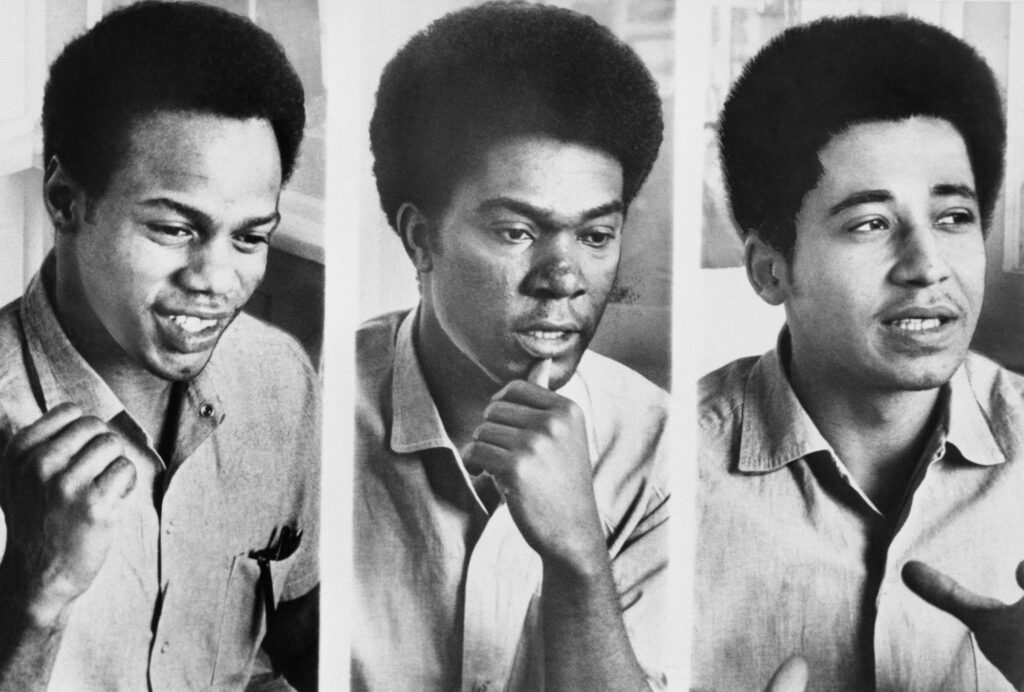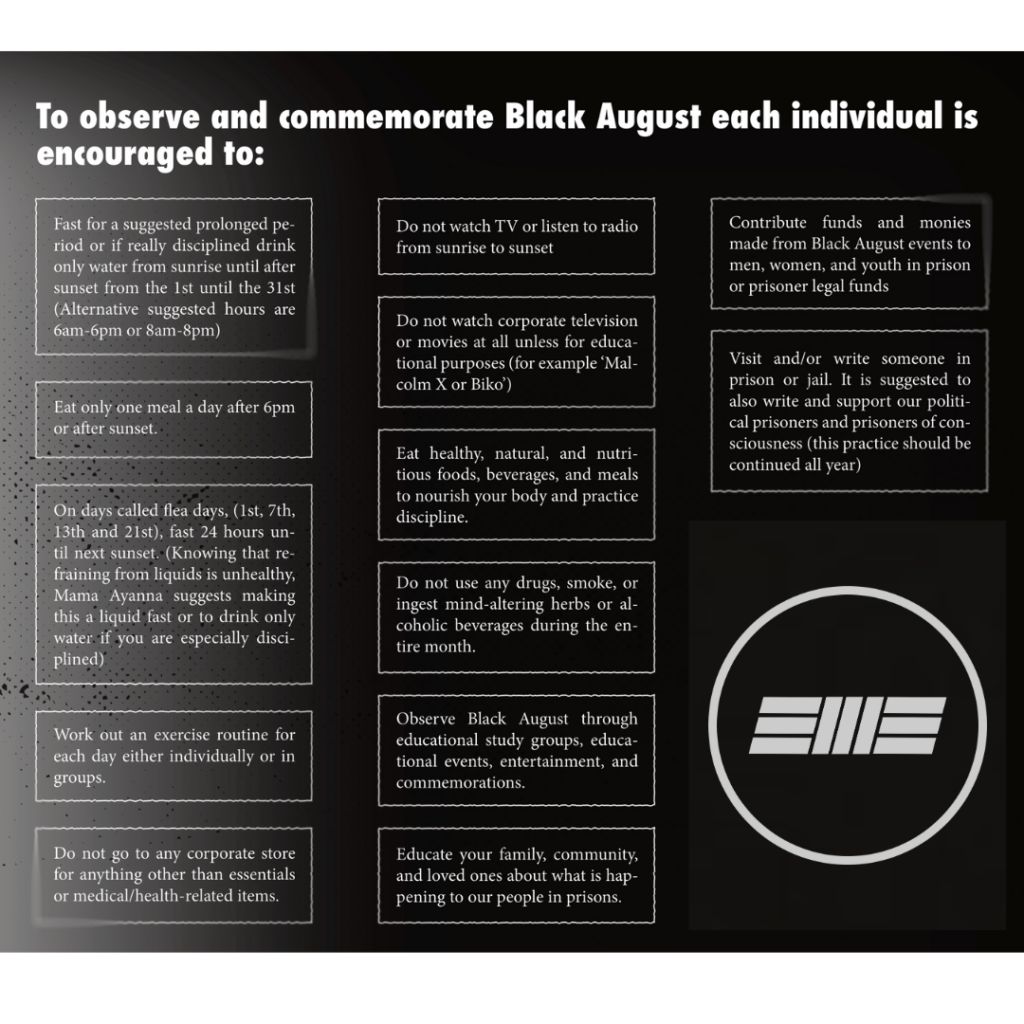Black August: Black Liberation and its Deep Ties to the Month of August
written by Randolph Carr
an article from WARTIME: SPECIAL EDITION (FALL 2023)
Too many of our people are forgotten in the belly of the beast, the jails and prisons that litter America.
Since 1979, Black August has been invoked as a time of memorial and resistance. Black August is a month-long commitment to a core set of tenets that honor the revolutionary spirit of our freedom fighters—political prisoners, prisoners of war, and exiles—who have given the ultimate sacrifice. It is not a month of celebration or a time for festivities. It is a month focused on educating ourselves and our communities about the oppressive conditions behind the walls and within the cages of the prison system. During this time, the Black August tradition is to study the resistance and righteous rebellion of Black people to slavery, colonization, and genocide throughout the diaspora.
From its very beginnings, Black August has been a revolutionary concept—with its inception taking place on the prison grounds of California. It is a history we should hold on to and must preserve as we renew our own spiritual and political commitments. To understand Black August you have to recognize the struggle of Black prisoners in San Quentin to develop a revolutionary consciousness from within America’s chief repressive institution.
During the first Black August, Brothers wore black armbands around their left arm and studied revolutionary works, while they fasted from sunup to sundown. The fast was to symbolize and serve as a reminder for the sacrifice of those who came before. Brothers abstained from the consumption of alcohol, drugs, and television. Instead, the time was turned towards the development of mind, body and spirit, a collective and individual practice of the core tenets.
The tenets of Black August can be summed up simply: fast, study, train and fight.
The month of August carries heavy significance in the protracted struggle for Black Liberation. The Haitian Revolution, the first successful slave revolt in the Western Hemisphere, began in the heat of August. In a moment similar to today, the Watts Rebellion was waged for several days in August, evoking the August memories of Gabriel Prosser and Nat Turner. Black August also stands as a memorial to the assassination of George Jackson, Jonathan Jackson, W.L Nolan, James McClain, William Christmas, and Khatari Gaulden – central figures in the revolutionary prisoners’ movement that carry through to today’s call for abolition.
Indeed, without a proper understanding of figures like George and Jonathan Jackson, for example, the theory, strategy, and history of prison abolition loses its radical edge. George Jackson would write in his collection of letters, Soledad Brothers, that, “in a well-ordered society prisons would not exist as such”. With fleeting attention, we’ve made mention of the man, but hardly have we sat to weigh the significance of life and struggle that would shape the revolutionary consciousness of prisoners from coast to coast. It was George Jackson’s death that would be the catalyst for the Attica Uprisings, where more than 800 prisoners would take control of the prison in order to uplift their demands for more humane conditions and just treatment.

Still, we struggle. Still, we have political and politicized prisoners who embody a commitment to struggle that we must honor. With careful attention, the elders of the Black August Organizing Committee and other dedicated comrades have preserved the meaning and intention of Black August. We must continue to build upon the work that has come before us. We must take ourselves more seriously, understanding we aren’t alone and remembering there are those who we cannot forget.

To invoke the spirit of Black August year-round, we observe a day of fasting, study, and service on the 9th Day of every month. Day of the Nines is our monthly call to action and national day of solidarity.
Hit the link to learn more: www.blackmen.build/day-of-the-nines
